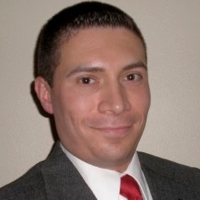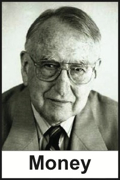Rascals case in brief
In the beginning, in 1989, more than 90 children at the Little Rascals Day Care Center in Edenton, North Carolina, accused a total of 20 adults with 429 instances of sexual abuse over a three-year period. It may have all begun with one parent’s complaint about punishment given her child.
Among the alleged perpetrators: the sheriff and mayor. But prosecutors would charge only Robin Byrum, Darlene Harris, Elizabeth “Betsy” Kelly, Robert “Bob” Kelly, Willard Scott Privott, Shelley Stone and Dawn Wilson – the Edenton 7.
Along with sodomy and beatings, allegations included a baby killed with a handgun, a child being hung upside down from a tree and being set on fire and countless other fantastic incidents involving spaceships, hot air balloons, pirate ships and trained sharks.
By the time prosecutors dropped the last charges in 1997, Little Rascals had become North Carolina’s longest and most costly criminal trial. Prosecutors kept defendants jailed in hopes at least one would turn against their supposed co-conspirators. Remarkably, none did. Another shameful record: Five defendants had to wait longer to face their accusers in court than anyone else in North Carolina history.
Between 1991 and 1997, Ofra Bikel produced three extraordinary episodes on the Little Rascals case for the PBS series “Frontline.” Although “Innocence Lost” did not deter prosecutors, it exposed their tactics and fostered nationwide skepticism and dismay.
With each passing year, the absurdity of the Little Rascals charges has become more obvious. But no admission of error has ever come from prosecutors, police, interviewers or parents. This site is devoted to the issues raised by this case.
On Facebook
Click for earlier Facebook posts archived on this site
Click to go to
Today’s random selection from the Little Rascals Day Care archives….
Click for earlier Facebook posts archived on this site
Click to go to
Today’s random selection from the Little Rascals Day Care archives….
Assistant attorney general complains: ‘Innocence is in vogue now’

linkedin.com
Jess Mekeel
Aug. 11, 2016
“[North Carolina] Assistant Attorney General Jess Mekeel said [Johnny] Small’s motion should be dismissed.
“ ‘Innocence is in vogue now,’ he told the judge, the Associated Press reported.
“Exonerations are certainly on the rise. Last year, about 150 people were exonerated, a record number, according to the National Registry of Exonerations….
“Mekeel [said] he considers reopening cases based on recanted testimony to be a threat to the American legal system.
“ ‘This is an attempt to retry a 28-year-old case. Twelve jurors made that determination already. They heard the evidence. They concluded the defendant was guilty,’ Mekeel said, according to WRAL. ‘They jeopardize the stability and reliability of our justice system.’ ”
– From “Man spent 28 years in prison after his friend accused him of murder. Now, the friend said he lied” by Travis M. Andrews in the Washington Post (Aug. 9)
“Innocence is in vogue now” – what a revealing glimpse of the inner prosecutor! As if exonerations were a fad, an unwarranted threat to “the stability and reliability of our justice system.”
Is it any wonder that district attorneys such as Jon David so eagerly pursue innocence advocates such as Chris Mumma?
![]()
High school students introduced to ‘Innocence Lost’

pastdaily.com
Edward R. Murrow
June 10, 2016
It’s heartening to see that, 25 years later, “Innocence Lost” is still shining light on the wrongful prosecution of the Edenton Seven – and for a younger audience! This is a note from Judy Griffin, a teacher at Hamilton High School in Michigan, who recently rediscovered Ofra Bikel’s eight-hour masterpiece:
“I want you to know how helpful it is (to have “Innocence Lost” available online). I teach in a resource room English class. The kids have no cognitive issues, but reading is a tremendous struggle. When they can receive the information through really good videos like this one, we can cover some great information.
“We start by reading Edward R. Murrow’s introduction to ‘This I Believe.’ Then the students create digital versions of their own. After that, they view ‘Good Night, and Good Luck.’ They have just learned about McCarthyism at this point in U.S. History, so it is fresh in their minds.
“We move then into The Crucible. The students are then asked to compare this to ‘Good Night, and Good Luck.’ They read ‘Why I wrote The Crucible’ by Arthur Miller.
“At the conclusion, we talk about how these hysterias are repeated and actually happened even prior to Salem. I introduce the Day Care scandal, and was thrilled to find the original ‘Frontline’ episodes. I had seen it when it aired!
“They are now researching various aspects of the hysteria. Some are looking at ‘satanic ritual abuse,’ some are looking at how hysteria spreads, some are researching what happened to the various defendants, and some are looking at the causes. We emphasize that this is not unique to any of these situations, and the point of this all is to show how vulnerable societies are to hysteria….”
![]()
Oh, to see ourselves as other see us – ouch!
 Jan. 11, 2013
Jan. 11, 2013
“Chris Bean (Bob Kelly’s lawyer until becoming involved as a child-witness parent) told me that when the townspeople first saw the documentary, they thought it was OK and that nobody thought my film had personally misrepresented them.
“But then, he told me, the firestorm of national attention began and people were writing to the mayor, to the townspeople, to many of the families I interviewed, and it was like a house of cards, you know. It all came tumbling down on them.”
– Ofra Bikel, quoted in the Newark Star-Ledger (July 18, 1993)
“The only woman who never complained after the first film,” Bikel said, was Jane Mabry – Patient Zero in the rumor contagion.
What happens to kids programmed with lies?
 March 2, 2012
March 2, 2012
In 1995 John Money, professor emeritus of medical psychology and pediatrics at Johns Hopkins University, asked:
“What happens to these kids who have been programmed to believe a delusion?…. What on earth are we doing to this generation of children who are carrying the lies for us?”
For those alleged child-victims who testified in day care abuse cases, the urge to forget and to stay silent must be strong indeed. Who wants to believe he was so misused by his own parents, not to mention by therapists and prosecutors? Who wants to summon the courage to look back at the ugly truth and to take it public?
One exception was Kyle Zirpolo, who came forward in 2005 to apologize for his role in the McMartin Pre-school case.











0 CommentsComment on Facebook